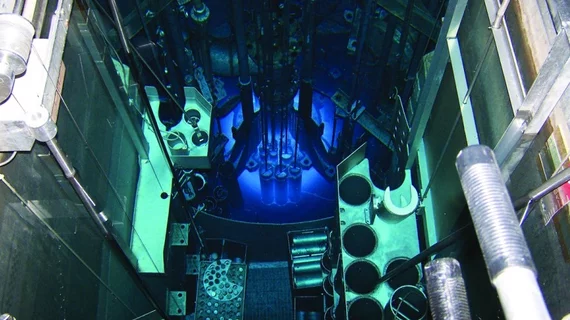University's research reactor increases medical isotope production in wake of supply disruption
The University of Missouri’s research reactor, MURR, is increasing its production of crucial medical radioisotopes in the wake of the supply chain disruption caused by a downed reactor in the Netherlands.
In late January 2022, a high-flux reactor (HFR) in the European country was shut down due to a water leak detected in its cooling system. Though the root cause of the issue has been established and a plan of action has been put into place, the Nuclear Medicine Europe Emergency Response team has informed stakeholders that there is still no target date for resuming operations.
Inevitably, the outage will cause global supply shortages of critical medical isotopes used for imaging and therapeutics. But help is on the way, according to a statement released by the University of Missouri Wednesday.
“An interruption in the supply of medical radioisotopes is a critical issue since, unlike typical drugs, these drugs cannot be stockpiled due to their short half-lives, or their quickly diminishing effectiveness as their active ingredients undergo radioactive decay,” explained J. David Robertson, the executive director of MURR. “This means if these drugs are not produced this week, cancer patients will not receive their treatments next week.”
Currently, MURR is the sole producer of Mo-99, I-131 and Lu-177 in the United States, and this isn't the first time it has stepped in to assist during disruptions in the medical isotope supply chain. In 2014, during a separate shortage, MURR’s routine maintenance was delayed so that the reactor could stay online to maintain production until the scarcity subsided.
Robertson expects to continue MURR’s increased production for the entire duration of the European HFR repair, for which there is not yet a definitive timeline.
“MURR is fortunate to be in a position where we can increase our production when the global supply chain is impacted,” Robertson said. “Our dedicated staff are committed to getting lifesaving treatments delivered to the patients who need them.”
You can read the full release here.
Related Radiotracer Isotope Shortage News:
Netherlands nuclear reactor has resumed operations after unplanned outage
Medical isotope shortage looms as 'unplanned' outage halts Mo-99, Lu-177 production
Texas A&M University to lead isotope R&D trainee program with $2 million grant
University's research reactor increases medical isotope production in wake of supply disruption
One chemistry professor's role in increasing radioisotope production in the U.S.
NorthStar breaks ground on isotope facility, moves toward doubling domestic Mo-99 supply
Isotope update: Target date for resuming production of Mo-99 still unclear
Wisconsin company to begin producing medical isotopes next year
Isotope shortage update: Target restart date for downed reactor has been set
Medical isotope update: Shortage expected to last weeks as nuclear reactor remains sidelined
Nuclear reactor in Poland steps up to address Mo-99 shortage
Medical imaging isotope producer Shine finalizes merger with fusion technology specialist
SHINE gains exclusive license for Lu-177 radioisotope production

